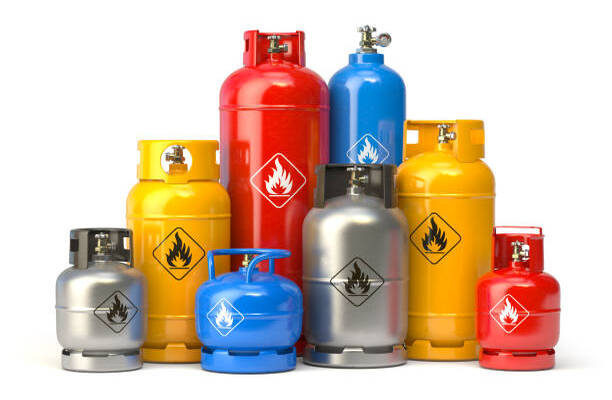By Chiagoziem Abosi
Edited by Ezennia Uche
At a small restaurant tucked behind Computer Village, the sound of frying oil fills the air. But behind the counter, the cook is frowning.
“Gas don turn gold,” she muttered, twisting the regulator knob carefully like she’s handling treasure.
Cooking gas prices have jumped again, crossing ₦3,000 per kilogram in parts of Ikeja. For many small food businesses, it’s not just heat from the kitchen anymore — it’s the heat from the market.
‘I Can’t Even Plan My Budget’
“I filled 12kg yesterday for ₦38,400,” said Mrs. Olanike Adebayo, a caterer in Ogba. “Just last week, I paid ₦18,000. Now, I can’t even plan my budget. I had to increase the price of jollof rice from ₦1,000 to ₦1,500. Customers are complaining, but what can I do?”
At a bakery along Allen Avenue, Tunde Osho, a 29-year-old baker, said the rise is already baking trouble.
“We use gas to bake bread and meat pies daily. If the price keeps rising, we’ll have to switch back to charcoal or reduce production — but that one go slow work,” he said, dusting flour off his hands.
Profit Margins Under Fire
Caterers who prepare food in bulk say the situation is eating deep into their profits.
Ngozi Eze, who runs a small food service that delivers to offices in Ikeja GRA, explained:
“I used to refill twice a week. Now I’m buying smaller quantities and cooking less. If I cook too much, I lose money. Sometimes, I tell clients we can’t take new orders until next week.”
No Official Increase, Yet Prices Keep Rising
Until recently, many Nigerians assumed the price surge was due to another government-approved increase. But according to the Nigerian Midstream and Downstream Petroleum Regulatory Authority (NMDPRA), there has been no official adjustment in the cost of cooking gas.
The sudden spike, officials say, is linked to a recent strike by the Petroleum and Natural Gas Senior Staff Association of Nigeria (PENGASSAN), which disrupted supply.
For small businesses in Ikeja, those numbers are more than just statistics — they’re daily struggles.
Households Feel the Heat Too
Even households aren’t spared. At the Ikeja City Mall car park, Aisha Yusuf, a single mother of two, said she now rations her cooking.
“Sometimes, I cook once a day and we just manage. I can’t be buying gas every two weeks again,” she said.
Some vendors are getting creative to survive. Rafiat Bello, who runs a food stand near Oba Akran, mixes energy sources.
“I use gas in the morning rush, then later switch to charcoal stove. It’s stressful, but at least I still dey cook,” she said.
Experts Warn of Deeper Problems
Experts say the surge in prices is tied to the naira’s depreciation and the high cost of importing Liquefied Petroleum Gas (LPG).
“Until we improve local production and storage facilities, prices will keep swinging,” said energy analyst Dr. Olumide Ajayi.
‘Na the Price of Gas Dey Burn Person Pass’
For now, many Lagos kitchens have turned into battlefields against cost, smoke, and survival.
As Mrs. Adebayo put it with a tired laugh:
“I no even fear fire again. Na the price of gas dey burn person pass.”








